DANIU 1M 4mm Banana to Banana Plug Soft Silicone Test Cable
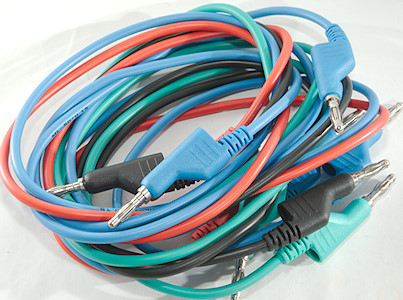
Official specifications:
- Color: 4 Kinds of Color, Blue,Black,Red,Green
- Material: Wire & Conductive Metal
- Current: 15A
- Plug size: 4mm
- Length: 1M
- Suitable For: Testing
This is standard banana plug test cables. The pack is supposed to contain 4 cables, but I was lucky and got 5.
I bought them from Banggood.
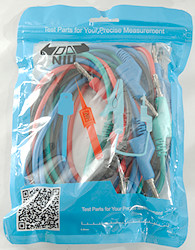
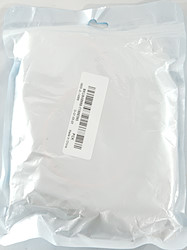
The plastic bag do not list any specifications and the QR code links to Banggod.
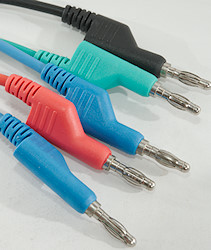
There is four different colors, I would also have liked a yellow cable.
If I had checked a bit more I could have got that, they do also exist in a 5 pack that includes yellow.

The plug fits into a 4mm hole, but the thickness at the back of the metal plug will prevent it from being fully inserted on some devices.
The actual plug is 16mm long and the thick part adds 1.6mm (My other plugs are 17.5 to 20mm long). The plug gave good contact in all the devices and binding posts I tested in.

It is possible to stack the plugs. Other brands of banana plugs did also fit nicely into the back.
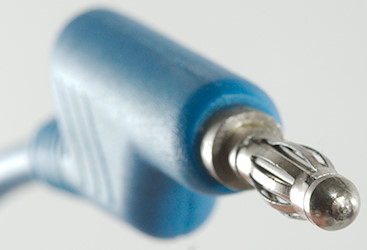
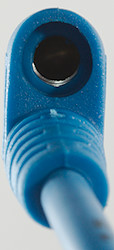
Test and measurements

The wires are 95cm long on all cables measured from end of strain relief to strain relief at the other end (i.e. strain relief not included).
Measuring ohms with a 4 terminal meter gave 20mOhm for one cable, this gives an estimated 18AWG or 0.8mm2 for the cable.
The "All" row is all five cables plugged together in one long string.
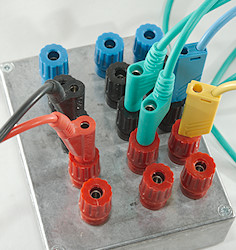
Here I supply 10A through the read and black wire and measure voltage with the yellow and blue wire. This measures the voltage drop in the cable and connections including my 30A rated binding post. I call this "Front 10A" in the table.
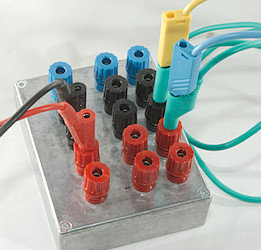
Here I have moved the measurement to the back of the plugs, this way I ignores the connection resistance and only measures the cable resistance. I call this "Back 10" in the table.
Using the above two values I can calculated the contact resistance
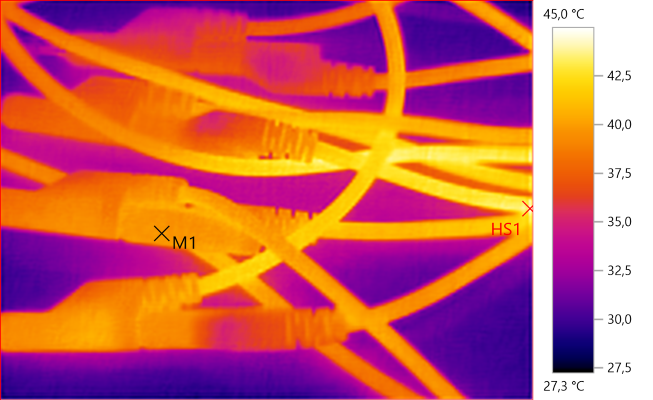
M1: 40.0°C, HS1: 45.0°C
My power supply did not like running shorted with 15A and due to that I only used 10A here. I tested for 15 minutes and then took the above IR picture.
It looks like the maximum temperature increase is about 15°C, it would be about double with 15A and this is acceptable.
With 10A current the voltage drop increased from 1063mV to 1089mV after 15 minutes
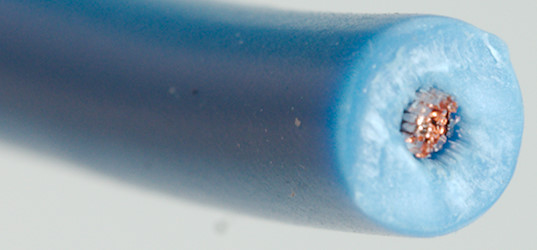
The isolation is fairly thick. With my caliper I measured the outer diameter to 3.6mm. It is not high temperature resistant, a solder iron at 150°C can mark it, at 350°C it will slowly melt the isolation.

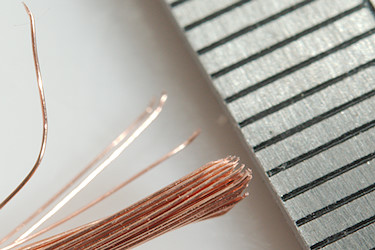
It do have fairly many thin strands, making the cable flexible.
Conclusion
These test leads looks good, the resistance is fairly low and they make good contact.
Notes
I use this types of test leads all the time and probably have more then 100 of them in different lengths (25cm, 50cm, 1meter and 1.5meter).